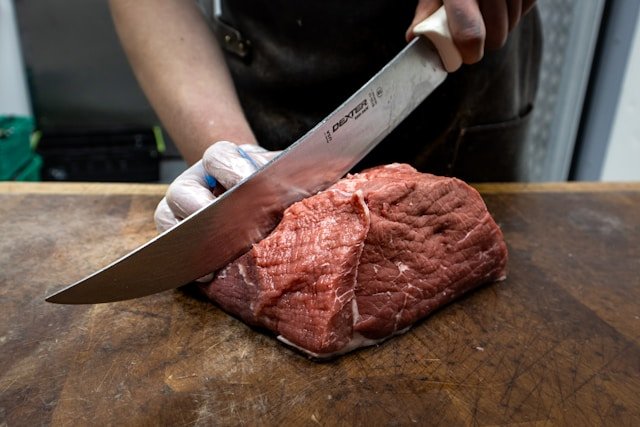BAKU, September 9
Meat prices in Azerbaijan have climbed almost daily this year. According to the State Statistics Committee, average prices in January–July rose 6.8% compared with the same period last year. But in August the situation sharply worsened, with a further 20% increase. Analysts now warn the cost of meat may soon hit historic highs.
Imports and Declining Herds
Experts point to both global and domestic factors. On the international side, world meat prices have surged to unprecedented levels in 2025. Since at least 35–40% of Azerbaijan’s demand is covered by imports, global shocks quickly spill over into the domestic market.
But the deeper problem is weakening domestic production. Official data shows that as of January 1 the country had 6.85 million sheep and goats, 2.46 million head of cattle, including 1.22 million cows and buffalo. All figures represent declines compared with the previous year.
Subsidy Paradoxes
A central issue, experts argue, is the lack of systemic government support for livestock. While much of the agricultural sector receives sizable subsidies, animal husbandry is left behind. For example, farmers receive 100 manats for each calf born through artificial insemination — but nothing for calves born naturally. Critics say the policy promotes technology, not livestock development, and discourages traditional breeders.
The imbalance is starkest when compared with subsidies for crops. Alfalfa, the main feed crop, receives just 100 manats per hectare. By contrast, subsidies for berry cultivation are many times higher: 15,000 manats per hectare for blueberries, 9,600 for kiwi, 3,200 for raspberries, currants, and blackberries. Many of these berries already grow wild in Azerbaijan, while the population’s actual demand for them is minimal compared to the need for affordable meat.
Farmers say this misalignment distorts priorities: essential feed crops are neglected, while luxury fruits are incentivized. The problem is compounded by decades of pastureland being converted into cotton fields, further undermining livestock breeding.
Fresh or Nothing
Cultural factors also shape the market. Azerbaijanis strongly prefer fresh meat, while frozen imports are viewed skeptically, and even chilled meat has limited demand. This insistence on freshness creates constant supply pressure and limits the use of imports and long-term storage, intensifying price volatility.
Future Risks
If trends continue, experts predict meat prices could reach 30 manats per kilogram within the next few years. To prevent this scenario, analysts urge a comprehensive livestock development strategy, including land-use reforms for pastures and a major overhaul of the subsidy system.
Until then, meat — the staple food for most households — may continue to move further out of reach, even as subsidies pour into blueberries and kiwi.
Source: Bizim.Media


